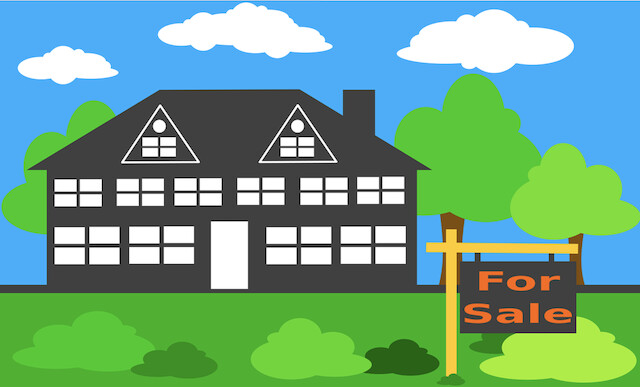
Photo: Pixabay
B.C.'s ever-evolving real estate industry has seen rapid advances in home buying approaches over the past 30 years.
We read newspapers and drove around, and every wrong turn was an opportunity to discover something new. Now we look at our smartphones when we should be working. Buying a home in British Columbia has been revolutionized by advances in technology and changes in human behavior and expectations.
The Information Age (1994-2004)
Let's go back to the early 1990s. Back then, people drove around and read newspapers looking for signs in areas of interest. Eventually they contacted a real estate agent and started visiting properties. The agent finds several more listings and once the right one is found, the client makes the purchase.
Basically all we needed was a car, a local real estate agent, and a print ad and sign. There was bad coffee at the open house, grainy photos in the newspaper, and the agent's car smelled like cigarettes.
When the Internet began to develop in the late 1990s, it changed the way people searched for homes. Websites with property listings have sprung up, giving buyers the opportunity to view homes from the comfort of their own homes. However, these websites were often rudimentary with limited photos and information. It wasn't great…yet.
Quantum Leap (2005-2015)
This time, we have redefined the digital environment in the real estate market. With the proliferation of smartphones and high-speed internet, real estate sites have become more sophisticated. High-resolution photos, detailed property descriptions, and virtual tours are starting to become the norm. Power has shifted from real estate agents to buyers, who now have unprecedented access to the market. (By the way, that's how my wife, not our agent, found our house years ago.)
Buyer expectations have also begun to change. They needed all the information, and they wanted it now. Online mortgage calculators are popping up everywhere, and digital mortgage applications have arrived.
The current “swipe right” era (2016-present)
Things have changed dramatically, with virtual reality tours now allowing buyers to “walk” through a property without leaving their home. Big data and artificial intelligence are being used to predict (or drive) market trends and recommend properties to prospective buyers based on their preferences and past behavior.
Agents and sellers use social media platforms for targeted advertising and to engage with potential buyers through live videos and interactive posts. With virtual tours and e-signing, you can buy a home without ever leaving your current home.
Keep in mind how most people find properties to buy. This is important because in order to sell a home, you need to understand how people find homes to buy.
Some people still drive around neighborhoods looking for signs and open houses. But the vast majority are looking online. Searches typically include parameters such as desired bedrooms, number of bathrooms, and square footage.
However, the most important factor to keep in mind when selling your home is price. Searches can be conducted by individuals, or often set up on their behalf. When you do a search, you will almost always see the highest price (usually in the $25,000 range).
It may seem a little high, people expect to haggle a little, but if your price is too high, many prospective buyers won't even know your home will be listed. If you're just above his $25,000 price point (so $526,000), buyers looking up to $525,000 won't be able to see your listing.
I think it's very important to get the pricing right from the beginning. As long as you can stay under the $25,000 increase threshold, it's okay to leave some extra headroom. This isn't true every time, but it's often true.
I don't think there's anything wrong with choosing a price and remaining resolute when offers come. Doing so will expose your home to as many buyers as possible, which should lead to more action and hopefully a faster sale.
If you look at the list of sold properties, you will see that many properties are sold at list price. Remember, it's your agent's job to explain why your home is worth the asking price. So check if they are doing that.
But ultimately it's your home, so it's your choice how much to sell it for, whether it's at the lowest listing price or with a little wiggle room.
This article was written by or on behalf of an outsourced columnist and does not necessarily reflect the views of Castanet.


